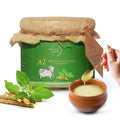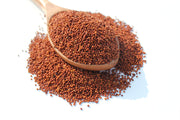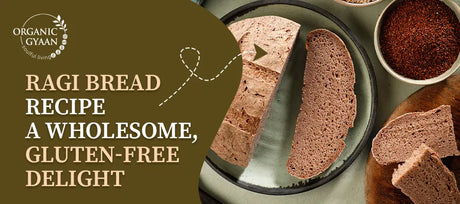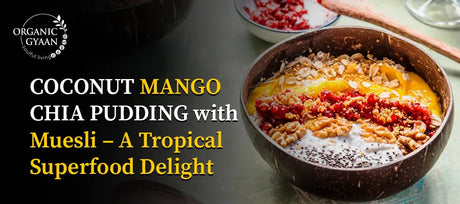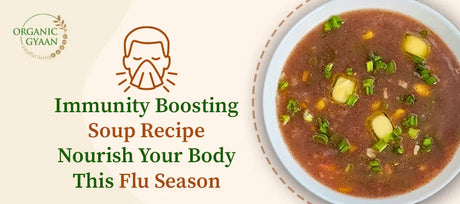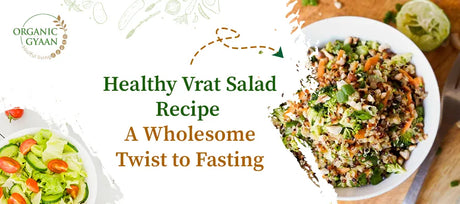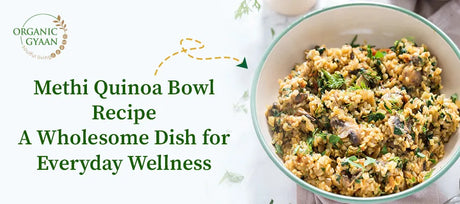Kodo millet flour, made from unpolished Kodo millet (also known as Kodra, Varagu Millet, Koden, Arikelu, Harka, or Koovaragu), is a powerhouse of nutrition rooted in ancient Indian food traditions. Known for its blood-purifying properties, high fiber content, and low glycemic index, this flour is ideal for diabetics, heart patients, and anyone looking to maintain balanced energy and better gut health.
Our organic kodo millet flour is not just ground grain- it’s activated, meaning the UNPOLISHED millet is soaked, gently dehydrated, and stone-ground to preserve nutrients and enhance digestibility.
Why Activated Kodo Millet Flour Matters
Most regular flours are made from dry grains, which can be hard on digestion. Our kodo millet flour undergoes a 3-step activation process:
- Soaked to reduce anti-nutrients like phytic acid
- Dehydrated at low temperatures to retain minerals
- Stone-ground to preserve fiber and natural flavor
This process improves the bioavailability of vital minerals like iron, magnesium, zinc, and calcium, making it a gut-friendly, nutrient-dense choice. It's especially beneficial for those following fasting protocols or managing chronic conditions.
Kodo Millet Flour Benefits
-
Supports Blood Purification – Helps detoxify the body by cleansing the bloodstream
-
4x More Fiber Than Rice – Improves digestion and supports healthy gut flora
-
Regulates Blood Sugar – Its low glycemic index makes it perfect for diabetics
-
Heart-Healthy – Reduces hypertension and supports cardiovascular function
-
Bone & Joint Support – Naturally rich in calcium and iron
-
Gluten-Free & Easy to Digest – Suitable for people with gluten intolerance and sensitive digestion
-
Ideal for Detox & Healing Diets – Perfect for vrat (fasting), recovery meals, and sattvic diets
These kodo millet flour benefits make it a must-have in every kitchen aiming for holistic wellness.
How to Use Kodo Millet Flour
Perfect for both fasting and daily meals, kodo millet flour is light, sattvic, and versatile.
Best For:
- Roti, Paratha, Cheela, Laddus, Millet Halwa, Pancakes, Millet Bread, Crackers
This flour works beautifully in both traditional Indian recipes and modern, gluten-free baking.
How to Make Soft Kodo Millet Roti
To make nourishing, soft rotis with kodo millet flour:
- In a bowl, mix the flour with warm water and knead into a soft dough
- Add 1 tablespoon of A2 Gir Cow Ghee after kneading for extra softness and nutrition
- Optional: Rest the dough for 15–45 minutes to improve texture and rolling ease
- Roll gently and cook on a hot tawa on both sides
This method ensures digestibility, softness, and a light texture-perfect for fasting, healing, or daily meals.
Why Buy Our Kodo Millet Flour
-
100% Natural & Unpolished- Retains all essential nutrients
-
Soaked, Dehydrated, and Stone-Ground- activated for health and digestion
-
No Preservatives, additives, or chemicals- Just clean, healing food
-
Sustainably Sourced- Supports local farmers and eco-friendly agriculture
-
Doctor-Recommended Grain- Endorsed by natural health practitioners for diabetes, detox, and blood purification
Our organic Kodo millet flour is crafted with care and consciousness-offering more than just convenience; it delivers true nourishment.
Incorporating Kodo millet flour into your daily cooking is a simple yet powerful step toward better health. With its exceptional fiber content, natural blood-purifying properties, and low glycemic index, this ancient grain supports holistic healing from within.
Whether you're managing blood sugar, improving digestion, or embracing a clean, gluten-free lifestyle, Kodo millet flour bridges ancient wisdom with modern wellness.
Nourish your body, restore your balance, and cook with intention-make Kodo Millet Flour your everyday healing grain.
FAQ
1. What is kodo millet flour?
Kodo millet flour is a type of flour made from the seeds of the kodo millet plant. Kodo millet is a small, gluten-free grain that is commonly grown in India and other parts of Asia.
2. Is kodo millet flour gluten-free?
Yes, kodo millet flour is gluten-free, which makes it a great option for people who have celiac disease or gluten intolerance.
3. What are the nutritional benefits of kodo millet flour?
Kodo millet flour is rich in dietary fiber, protein, and various vitamins and minerals, including iron and magnesium. It is also a good source of antioxidants and may help regulate blood sugar levels.
4. How is kodo millet flour used in cooking?
Kodo millet flour can be used in a variety of dishes, including bread, pancakes, dosas, and rotis. It has a slightly nutty flavor that works well in both sweet and savory dishes.
5. How should I store kodo millet flour?
Kodo millet flour should be stored in an airtight container in a cool, dry place. It can also be stored in the refrigerator or freezer to extend its shelf life.
6. Can kodo millet flour be substituted for wheat flour in recipes?
Yes, kodo millet flour can often be substituted for wheat flour in recipes. However, because it is gluten-free, it may require the addition of a binding agent, such as xanthan gum or guar gum, to help the dough or batter hold together. It may also have a different texture or flavor than wheat flour, so experimentation may be necessary.
7. How can I make soft rotis using kodo millet flour?
To prevent rotis from breaking and to improve softness, add 1–2 teaspoons of psyllium husk (Isabgol) while kneading the dough. Psyllium binds the flour naturally, improves texture, and makes rotis easier to roll.

























